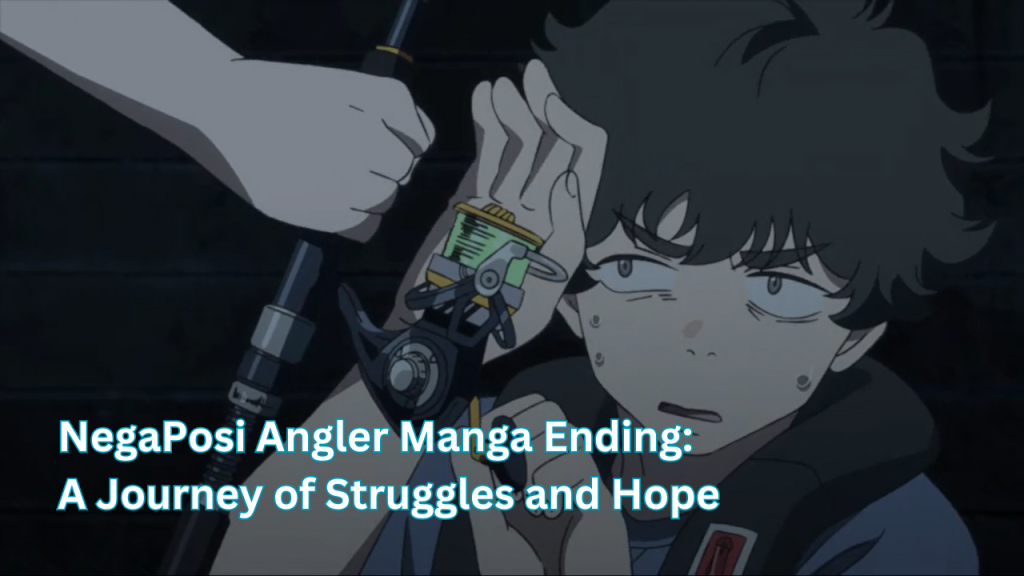NegaPosi Angler Manga Ending: A Journey of Struggles and Hope
If you’re curious about the NegaPosi Angler manga ending, it delivers a contemplative and fulfilling conclusion. The series follows Tsunehiro Sasaki, a man dealing with terminal illness and overwhelming debt. As the story unfolds, Tsunehiro embarks on a journey of self-discovery through fishing. What begins as a bleak narrative transforms into an uplifting tale about finding peace through nature and companionship. In the final chapters, Tsunehiro finds solace in fishing, which allows him to confront his emotional turmoil head-on. The ending balances his personal struggles and triumphs, offering a satisfying sense of closure for readers looking for meaning beyond adversity(MyAnimeList.net)(Anime News Network).
Quick Answer:
The NegaPosi Angler ending offers a reflective yet hopeful conclusion. Despite Tsunehiro’s grim prognosis, the story highlights how he finds comfort and purpose in fishing. Through the support of his friends Hana and Takaaki, Tsunehiro learns to navigate his despair. As the manga wraps up, readers are left with a bittersweet but optimistic resolution, emphasizing growth and human connection. Fishing becomes a central metaphor for Tsunehiro’s ability to cope with life’s unpredictability, showcasing how even simple activities can foster emotional healing(Wikipedia).
What happens to Tsunehiro Sasaki at the end?
By the end of NegaPosi Angler, Tsunehiro reaches a profound turning point in his personal journey. After a series of challenges—both internal and external—he starts to find emotional clarity. Although his prognosis remains terminal, his interactions with his friends and the calming nature of fishing help him reach a level of peace he hadn’t experienced before. The final scenes show Tsunehiro embracing the relationships he has built and the calm that fishing brings. This suggests that although his physical circumstances may be irreversible, he has found emotional liberation, a theme that resonates deeply with the story’s overarching narrative of finding hope amid suffering(Anime News Network).
Does the manga address Tsunehiro’s illness fully?
Yes, the manga treats Tsunehiro’s illness with nuance throughout the story. Rather than focusing solely on his terminal diagnosis, the narrative explores how it influences his outlook on life, relationships, and personal growth. The illness drives his actions and interactions, creating moments of vulnerability but also moments of strength. By the end, the manga shifts the focus from his physical condition to his emotional state, showing how he comes to terms with his mortality. This shift in perspective highlights a message of acceptance and mindfulness, encouraging readers to focus on living fully despite life’s hardships. The final chapters serve as a reminder of the importance of making the most of the present, even in the face of inevitable loss(Wikipedia)(Anime News Network).
How does fishing play into the final message?
Fishing is used as a powerful metaphor throughout NegaPosi Angler. Initially, Tsunehiro views it as a mere distraction from his problems, but it quickly becomes a symbol of patience, persistence, and peace. Just as fishing requires waiting and calmness in the face of uncertainty, so does life. Over time, Tsunehiro learns that the process of fishing mirrors his own journey of self-discovery—he must learn to wait, to persist, and to accept what he cannot control. The calmness and focus that fishing provides allow him to confront his emotional struggles head-on. By the end of the story, fishing has evolved from a hobby to a philosophy that shapes his perspective on life and death(MyAnimeList.net)(Anime News Network).
Is the ending satisfying for fans?
The ending of NegaPosi Angler strikes a delicate balance between emotional depth and optimism, leaving fans satisfied. It ties together the story’s themes of hardship, friendship, and the search for peace, all while maintaining the realistic portrayal of Tsunehiro’s illness and emotional journey. The way the manga balances Tsunehiro’s struggles with moments of lightness—through fishing and the relationships he forms—makes the conclusion feel earned. Fans of the series appreciate how the ending leaves room for interpretation but also provides enough closure to feel complete. The careful handling of difficult themes, such as mortality and emotional healing, ensures that the ending resonates deeply with readers(MyAnimeList.net)(Anime News Network).


